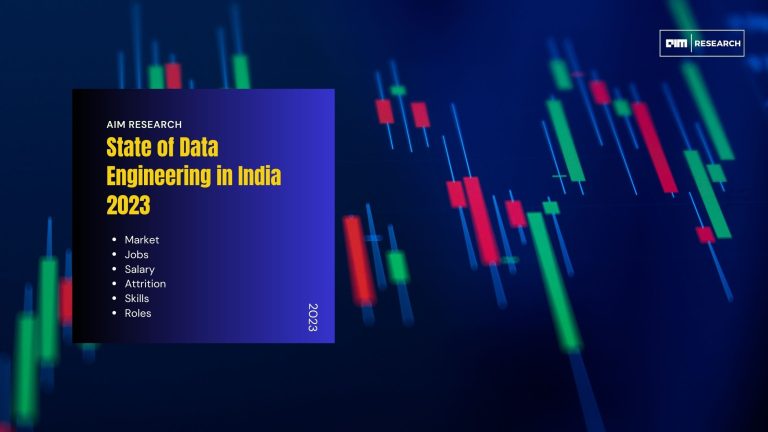Machine learning involves multiple stages and calls for a broad spectrum of skills. Advances in ML have led to the creation of new specialisations. The ML scene has many specialist roles, and their functionalities overlap to the extent that these designations are sometimes used interchangeably. Case in point — MLOps and data engineering.
MLOps: ML in production
As much as 90 percent of the world’s total data has been generated in the last few years. Big Data, though helpful in arriving at actionable insights, also pose a few challenges, such as:
- The acquisition and cleaning of large amounts of data
- Tracking and versioning for experiments and model training
- Deployment and setting up monitoring pipelines for production
- Scaling ML operations to meet business needs
The developers have faced similar challenges in the past while scaling conventional software systems. Back then, DevOps came to the developers’ rescue. DevOps help tackled issues arising in the development, testing, deployment, and operation stages of large scale systems.
MLOps lies at the intersection of DevOps, data engineering, and machine learning. It hinges on the communication between data scientists and the production team. Built on DevOps’ existing concept, MLOps solutions are designed to reduce waste, facilitate automation, and extract richer and consistent insights with machine learning.
MLOps approach helps in the following ways:
- MLOps combines the business knowledge of an organisation’s operation team and the data science team’s expertise to build an efficient machine learning strategy to drive maximum benefit.
- The regulatory side of machine learning is critical. The insight gained from data will not hold if one disregards the regulations and standard practices. MLOps puts operation teams at the forefront of the regulatory process.
- The collaboration between the operations and data team, facilitated by MLOps, helps optimise labour division.
- The key phases of MLOps are data gathering, data analysis, data preparation and transformation, model training and development, model validation, model serving, model monitoring, and model retraining.
- MLOps automates model development and deployment, resulting in faster release and lower operational costs. This ensures business agility and faster decision making.
- MLOps allows experimentation with different settings to select the best among them.
Engineering the data
Data engineering involves designing and building pipelines to transform data to a format end-users can understand (mainly data scientists). The pipelines collect data from different sources in a single warehouse.
The data engineering job has been around for over a decade, ever since databases, SQL servers, and ETL burst into the scene. But data engineering, as we know it, gained currency at the beginning of the last decade.
Companies realised they were sitting on goldmines of data, and software engineers, with the right tools, can leverage this data to drive business processes.
Data engineering moved away from traditional ETL tools and developed new ones to handle swathes of data. Data engineering focuses on aspects such as data infrastructure, data warehousing, data mining, data crunching, metadata management, and data modelling.
A data engineer is expected to have the following skills:
- Knowledge of popular open-source libraries such as Spark, Pandas, Hadoop, and Kafka.
- Hands-on experience with languages such as Python, Java, Scala, HTML, Javascript, etc.
- SQL is a must-have for a data engineer. SQL helps in the data processing of big data frameworks such as SparkSQL and Pandas. It also translates business queries into an understandable form for end-users.
- A data engineer should know relational databases and data warehouses.
MLOps vs Data Engineering
A survey by the International Data Corporation showed that most AI/ML projects don’t go into production, primarily because the expectations are not well communicated to the businesses or lack of skill in maintaining the production models.
Apart from building robust ML solutions, communication with stakeholders, setting clear expectations, and employee upskilling are critical elements in delivering business value. MLOps-enabled practices help achieve these goals.
MLOps can be defined as ML in production. Data is also an indispensable part of MLOps, and hence data engineering becomes a crucial component of MLOps by association. However, data engineering is just one part of the MLOps puzzle — DevOps and Machine Learning, being the other two.
While data engineering deals with the data management lifecycle, MLOps is concerned with deploying the ML system.



















































































